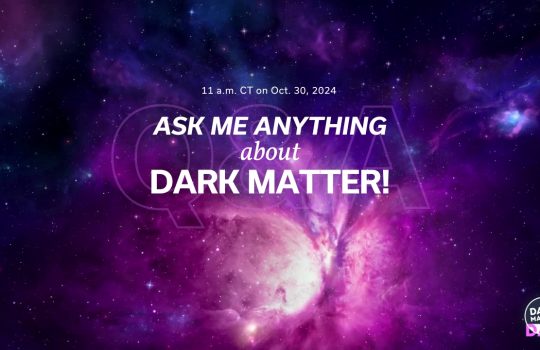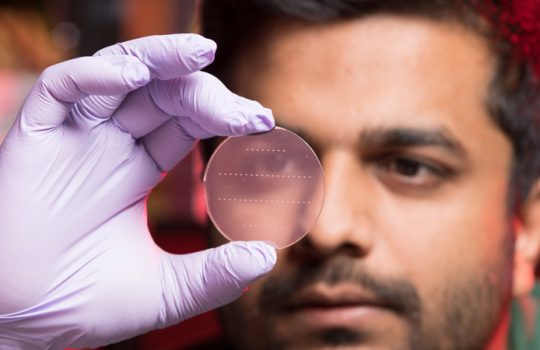A minute with Ryan Linehan
At Fermi National Accelerator Laboratory, postdoctoral researcher Ryan Linehan explores the intersection of quantum information science and particle physics by studying how particles impact superconducting quantum devices. Linehan’s work helps advance both quantum computing and dark matter detection.




